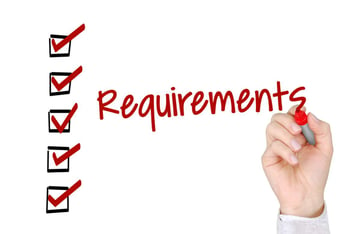A Guide to Virtual Assistant Training for Real Estate
Updated April 3, 2023
If you haven't heard so before, we can tell you that virtual assistants can be incredibly helpful for any property management company or real estate business. Whether you need accounting help, customer service assistance, or other property management support, a virtual assistant can bring specialized skills to your company right when you need them.
When you select a new virtual assistant for real estate, it's important to allocate time and resources to train them. Even if your new virtual assistant has plenty of skills and experience, they need to get up to speed on your company's specifics, clients, and processes so they can complete their work well.
In this guide, we'll cover why virtual assistant training is so important and give tips and steps for training your new remote team member!
Why is Virtual Assistant Training Important?
Even the most experienced property management virtual assistant will need some orientation and training in the specifics of your company. For example, your new VA might be a whiz with accounting or a stellar social media coordinator, but they won't know the nuances of your business unless you train them.
Training helps give your virtual team member every chance for success while helping them ramp up quickly to contribute meaningfully to your company sooner (rather than later)!
How to Train Your Virtual Assistant
There are two primary components to virtual assistant training.
First, prepare training materials ahead of your new virtual assistant's first assignment. Then, set aside time for the new VA to complete the training tasks.

Here's a closer look at these two phases and the steps to follow.
Preparing for Virtual Assistant Training
The first thing to do before your new virtual contractor starts is define their role and responsibilities. What tasks will they need to complete? What tools will they need to use?
With a clear idea of what your virtual assistant will do, you can develop a training plan that gets right to the essential information and doesn't waste any time. Then, from the list of responsibilities and tasks, begin creating some training materials. Here are a few ideas.
Gather Relevant Articles and Videos
You might find some helpful resources online from real estate virtual assistant companies or property management blogs. These materials can give your new virtual assistant some background in the work you do.
Create Training Guides or Videos
If searching for helpful videos doesn't yield the specific materials you need, take the time to make simple guides or videos for common tasks you'll assign to virtual assistants. While this may seem like a lot of work, keep in mind that you'll only have to do it once. You can reuse your guides if you add another virtual assistant to your team to do the same tasks.
Making your own training materials doesn't have to be complicated. You can write out the steps for a task in a Google Doc and use free software like Loom to create video tutorials right from your computer. A little investment here can go a long way.
Purchase Training
You may be able to pay for pre-made training from software companies or real estate virtual assistant companies to help meet your training needs. Alternatively, choose real estate virtual assistants from an agency that already offers training to develop the skills you need in your new assistant (like VPM Solutions).
Training Your Virtual Assistant
On your virtual assistant's first day, set aside some time for training. Review the training materials you've prepared and make sure you allocate enough time for them to complete the training course you've developed properly. Then, continue setting time aside for training on a daily basis throughout your new assistant's first few weeks until you're confident they understand their role, tasks, and expectations.
Organize your training plan so the virtual assistant starts with the high-level information, then drill down into the specifics of their day-to-day tasks. Ultimately, your virtual team member should spend far more time practicing the work they'll be doing for you rather than reading background on the industry.

When your virtual contractor has read through the training materials, have them complete a few practice sessions before diving into real work. This is especially important if your virtual assistant deals with sensitive information like finances or personal information on tenants. You don't want to risk any mistakes.
Once your VA has practiced to your satisfaction, assign them their first task. It's smart to review the first couple of tasks after they've completed the work to catch any lingering errors or inaccuracies.
Virtual assistant training doesn't have to be complicated, but it's crucial for success! Even if your training is short, it should thoroughly cover the tasks the assistant will complete while working with your company.
How VPM Solutions Helps Train Your Virtual Team Members
When considering where to find the best virtual assistants for real estate industry roles, including transaction coordination, listing management, vendor coordination, marketing specialists, and inside sales support, business owners can benefit from well-trained VAs that are ready to work!
VPM Solutions offers free industry-related courses through the VPM Academy for every contractor on the platform. With this level of training, companies can easily identify candidates that have the experience they need to fill roles quickly.
Then, with industry training handled before a virtual assistant ever becomes part of your team, you can start onboarding with company specifics, KPIs (key performance indicators), and processes to help your new VA boost productivity much sooner than if you chose a virtual assistant that didn't have excellent training beforehand!
Experience Better Virtual Assistant Training with VPM Solutions
Highly-trained real estate virtual assistants are valuable to your real estate business or property management company. When onboarding a new VA, real estate professionals should take the time to prepare training materials and set aside time on "Day One" for their assistant to review those materials. Then, before they start working on real tasks, hold a practice session so you know they can do the job.
Let VPM Solutions help you find a well-trained virtual assistant! Our VPM Academy prepares virtual assistants to work at a high level throughout the real estate industry. Get started with your Free Company Profile.





















